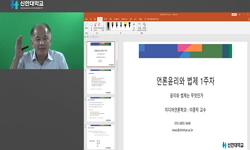이 글의 목적은 언론에 대한 내적·비공식적 통제와 그 하나로서 자기 검열을 개념적 수준에서 성찰하는 것이다. 체제가 민주화될수록 노골적 저항을 부를 가능성이 상대적으로 높은 외적·...
http://chineseinput.net/에서 pinyin(병음)방식으로 중국어를 변환할 수 있습니다.
변환된 중국어를 복사하여 사용하시면 됩니다.
- 中文 을 입력하시려면 zhongwen을 입력하시고 space를누르시면됩니다.
- 北京 을 입력하시려면 beijing을 입력하시고 space를 누르시면 됩니다.
https://www.riss.kr/link?id=A103318365
- 저자
- 발행기관
- 학술지명
- 권호사항
-
발행연도
2017
-
작성언어
Korean
-
주제어
자기 검열 ; 검열 ; 내적 갈등 ; 언론 통제 ; Self?censorship ; Censorship ; Internal Struggle ; Press Control
-
등재정보
KCI등재
-
자료형태
학술저널
-
수록면
41-72(32쪽)
- DOI식별코드
- 제공처
-
0
상세조회 -
0
다운로드
부가정보
국문 초록 (Abstract)
이 글의 목적은 언론에 대한 내적·비공식적 통제와 그 하나로서 자기 검열을 개념적 수준에서 성찰하는 것이다. 체제가 민주화될수록 노골적 저항을 부를 가능성이 상대적으로 높은 외적·공식적 통제는 금기시되는 반면, 정보를 생산하고 여론을 형성하는 언론의 역능에 대한 수요는 사라지지 않으므로 통제는 내부화·비공식화되는 경향이 있다. 이런 통제는 눈에 보이지 않으면서도 효과 또한 상당해 민주체제에 의해 선호된다. 특히 자기 검열은 검열의 기제가 개인 내부에 있어 더욱 예방적이다. 그러나 자기 검열은 일상적으로 쓰이는 빈도에 비해 아직 학문적으로 충분히 연구되지는 않은 것이다. 정의 또한 정착되지 않아 먼저 개념부터 명확히 할 필요가 있다. 이를 위해 이 글은 먼저 자기 검열의 기존 정의들을 개관하고 쟁점을 추출한다. 그리고 이에 대한 약간의 사례를 추출해 보완·분석한다. 자기 검열은 가장 철저하게 검열의 효과를 수행한다는 점에서 검열이 궁극적으로 바라는 것이지만, 항상 성공하는 것은 아니다. 검열체와 검열대상 사이에는 항상 치열하게 갈등할 수밖에 없는 권력과 규범이 교차하기 때문이다. 자기검열의 문제화는 이런 갈등을 부각시키고 언론인들의 내적 투쟁을 장려한다. 이처럼 자기 검열의 중심에는 결국 사람(언론인)이 있다. 자기 검열 개념은 언론인을 문제의 중심에 놓는 의의가 있다.
다국어 초록 (Multilingual Abstract)
This study aims to conceptually examine such an internal and informal control for the press as self‐censorship. An external and formal control is prohibited because of the likelihood of explicit resistance particularly when political systems are dem...
This study aims to conceptually examine such an internal and informal control for the press as self‐censorship. An external and formal control is prohibited because of the likelihood of explicit resistance particularly when political systems are democratized. On the other hand, the way of control is likely to be internalized and informalized because of the indispensible demand for the power of the press which produces political agenda and builds public opinion. This control is invisible, but the effect is considerably high. Therefore, democratic systems prefer it. Especially, self‐censorship is rather proactive because the mechanism of censorship is in internal thinking process. However, scholars have not fully studied it in spite of its high frequency in everyday life. The concept of self‐censorship has not been exactly defined yet. Acknowledging the current states, this study reviews a few existing definitions for the concept and points out pending issues in journalism around it. Also, this study adds more insight for it based on the analysis of some notable cases in Korea. Self‐censorship is indeed desirable to powerful censors because it produces the most perfect effects. Despite that, it is not always successful in that power comes into conflict with norms between censor and censee. Problematizing of self‐censorship gives lights on these conflicts and it encourages journalists‘ internal struggle. That is, there are still agency i.e., journalists in its center. To sum up, self‐censorship again brings into journalists as a core issue of journalism and press freedom.
목차 (Table of Contents)
- 1. 문제의 제기: 언론의 독립성과 통제
- 2. 내적 통제·비공식적 통제의 중요성
- 3. 자기 검열
- 4. 결론
- 참고문헌
- 1. 문제의 제기: 언론의 독립성과 통제
- 2. 내적 통제·비공식적 통제의 중요성
- 3. 자기 검열
- 4. 결론
- 참고문헌
- Abstract
동일학술지(권/호) 다른 논문
-
한국 문화예술 지원 정책의 팔길이 원칙 이념과 실현의 문제
- 서울대학교 언론정보연구소
- 정인숙(In Sook Jung)
- 2017
- KCI등재
-
Will Mobile Phones Replace Personal Computers? An Empirical Analysis of 2-Screen Panel Data
- 서울대학교 언론정보연구소
- Su Jung Kim(김수정)
- 2017
- KCI등재
-
- 서울대학교 언론정보연구소
- 주연경(Yeon Kyoung Joo)
- 2017
- KCI등재
-
- 서울대학교 언론정보연구소
- 유용민(Yong-Min Ryu)
- 2017
- KCI등재





 KCI
KCI DBpia
DBpia




